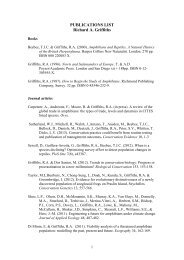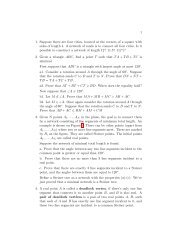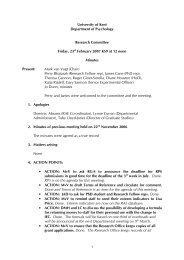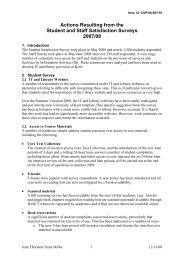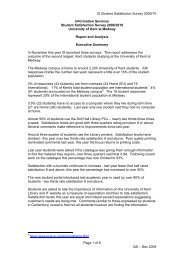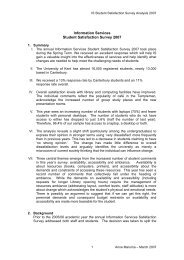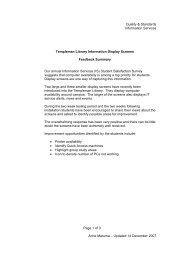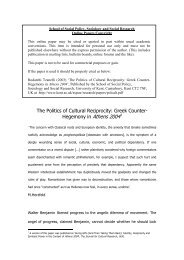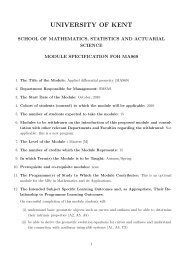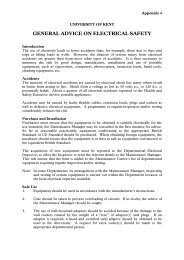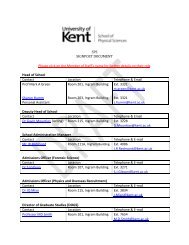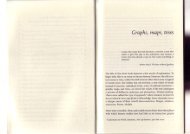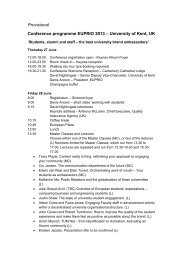The Million Pound Donors Report 2012 - University of Kent
The Million Pound Donors Report 2012 - University of Kent
The Million Pound Donors Report 2012 - University of Kent
Create successful ePaper yourself
Turn your PDF publications into a flip-book with our unique Google optimized e-Paper software.
<strong>of</strong>fers a way to raise the pr<strong>of</strong>ile <strong>of</strong> our grantees and their<br />
projects, but also allows for greater coordination <strong>of</strong> aid<br />
efforts, thereby improving aid effectiveness.<br />
If I was asked to advise someone else starting out in<br />
philanthropy, I would say: find out what you are passionate<br />
about and really work out why you want to tackle that<br />
particular problem. As a donor it’s too easy just to respond<br />
to requests, but you need to ask yourself: why this and not<br />
something else? <strong>The</strong>re’s an endless list <strong>of</strong> problems –<br />
locally, nationally and internationally – and almost all <strong>of</strong><br />
them are worthy problems to tackle. But in most areas all<br />
I can give is money, for example I can’t tell the difference<br />
between a really good malaria project and a really bad one.<br />
I could bring in lots <strong>of</strong> advisors but I couldn’t personally<br />
contribute much more than signing a cheque, and I didn’t<br />
want to do that. If you want to keep personal control over<br />
your funding decisions then you need to pick something<br />
that you know about, otherwise you’d be better <strong>of</strong>f giving it<br />
all away to a funder who does have that specialist<br />
knowledge.<br />
I would also say; allow yourself time to experiment, don’t<br />
think you have to have a perfect strategy on day one, but try<br />
the MIllIon PoUnd donors rePort <strong>2012</strong><br />
and end up with a strategy and a focus. Decide how<br />
involved you want to be - does it really matter whether you<br />
meet every grantee, or are you more comfortable working<br />
with intermediaries? And decide what your risk threshold is<br />
– are you really excited when it’s very risky and might fail or<br />
do you want to know that every penny has gone to a project<br />
with proven results from day one? you just have to work out<br />
what’s right for you. I think it’s important to take your<br />
time, don’t feel rushed – if you need help to learn how to<br />
read a budget or an investment report then ask for that<br />
training, people usually love to help. Finally, do try to meet<br />
other donors and talk to them about their experiences,<br />
because that will teach you a lot, even if it’s just what not to<br />
do!<br />
It is easier when you get to the stage where you can<br />
communicate about your work because you end up making<br />
great connections and finding interesting people, including<br />
fellow donors and people running projects that you might<br />
not otherwise have heard about. By talking about your<br />
philanthropic activities, and the excitement and pleasure<br />
they bring, hopefully you can encourage others to become<br />
donors.”<br />
23



